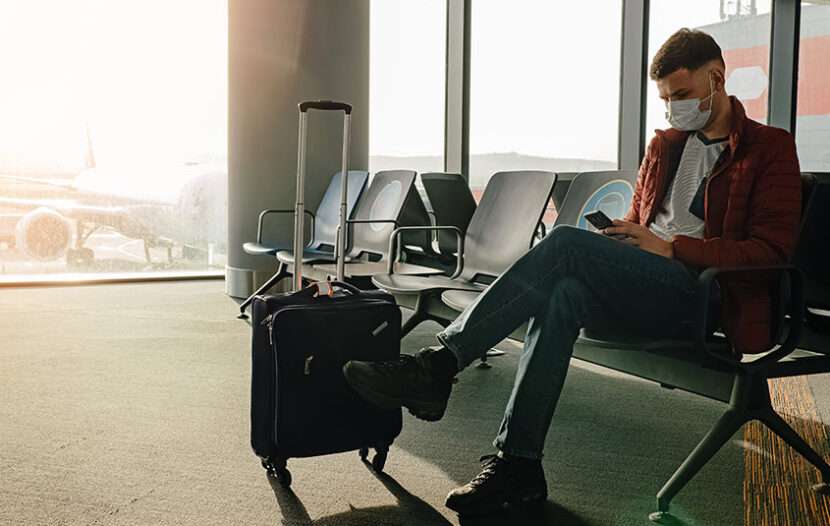TORONTO — For months Canadians complained there was a lot more ‘stick’ than ‘carrot’ in the fight against COVID-19.
Well, now there’s a carrot. And it’s travel.
Get vaccinated, and you can travel. That was the word from Prime Minister Justin Trudeau earlier this week, making good on an announcement first made on Aug. 13, and later reconfirmed on the campaign trail in the weeks leading up to the election.
Effective Oct. 30 everyone 12 and older getting on a plane or interprovincial train within Canada will have to show proof of full COVID-19 vaccination. After a one-month grace period, negative tests will no longer be an acceptable substitute. By the start of the 2022 cruise season, mandatory proof of full COVID-19 vaccination will also be required by cruise lines operating out of Canadian ports.
Foreign nationals entering Canada have been required to show proof of COVID-19 vaccination since Sept. 7.
In recent weeks, in many provinces, venues ranging from movie theatres to gyms to indoor dining have reopened to the fully vaccinated. While these reopenings are welcome, for many Canadians, it’s travel that’s been missed the most during the pandemic.
And as Canada’s vaccination effort progressed from a slow start to worldwide success, and as Canada emerged from challenging second and third waves of COVID-19, travel went from demonized, to deal-breaker.
At the peak of the second wave, in early January 2020, politicians and other public figures were shamed for taking winter sun getaways over the holiday break.
Now with 80% of eligible Canadians having received double doses of COVID-19 vaccine, travel has become the ultimate incentive.
Said Trudeau earlier this week, as he thanked Canadians for getting vaccinated: “You deserve the freedom to be safe from COVID-19, to have your kids safe from COVID, and to get back to the things you love.”
He added: “And if you haven’t gotten your shots yet, but want to travel this winter, let’s be clear, there will only be a few extremely narrow exceptions, like a valid medical condition. For the vast, vast majority of people, the rules are very simple. To travel, you’ve got to be vaccinated.”
Meanwhile the federal government’s advisory against all non-essential travel outside of Canada is still in place, after close to 19 months.
Gordon Dreger, founder of the Toronto-based Wheel & Anchor travel community, says enough is enough. He’s calling on the federal government to make adjustments to the blanket travel advisory.
The U.S., for example, updated its travel advisories during the pandemic to a country-by-country approach back in August 2020. Dreger tells Travelweek “that’s the most logical step to take at this point. There are countries where it is at least as safe as Canada to travel. We should be able to go there.”
Adventures Coordinators owner Tom Gehrels, who reached out to Travelweek earlier this month, is another advocate for more targeted advisories. “In a perfect world the government would alter their advice to be more specific to the destination and add a warning that travelling while not-vaccinated increases one’s risk of contracting and spreading COVID,” Gehrels told Travelweek.
Dreger says about 10% of Wheel & Anchor’s clients are travelling despite the travel advisory. “But most are staying put. The insurance implications are worrying many,” he says.
Dreger recently sent a letter to the federal government, outlining his concerns and calling for the travel advisory to be updated. Here is his letter…
“On behalf of our 4,000+ travelling members from across Canada, I am requesting that the international advisories that have been in place due to Coronavirus, be updated and adjusted in accordance with the current realities of global travel.
“At this point in time it is neither fair nor reasonable that Canadians who have waited more than a year and a half to travel outside the country should be limited by the blanket ‘Avoid All Non-Essential Travel’ advisory that has outweighed its usefulness for many parts of the world.
“Undoubtedly the health and welfare of Canadians should be first and foremost in making such a decision, but you would have to agree that the relative risk of travelling in much of the EU and a number of other countries around the world whose caseloads and vaccination rates are similar to Canada’s, is no greater than at home.
“In the interest of a revival of tourism, an industry which has suffered among the most during this time, in the spirit of reciprocity with those countries who have opened their doors to Canadians and out of respect for those who simply wish to take a foreign vacation, I call upon you to immediately adjust the travel advisories to more appropriate levels.”

